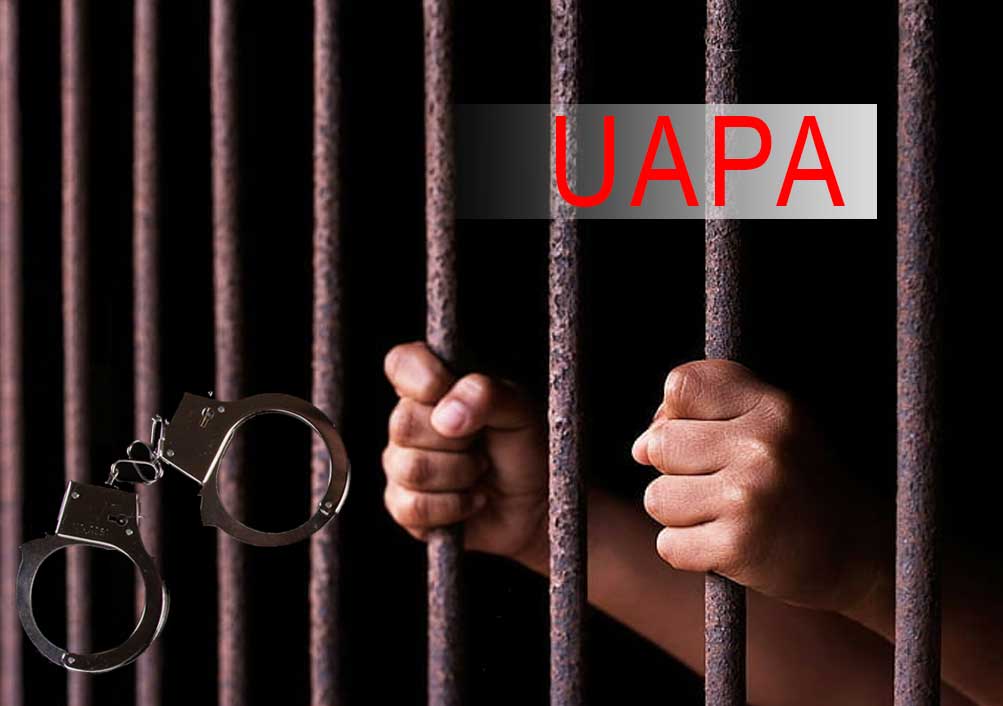The Punjab and Haryana High Court has held that after the conclusion of investigation the accused cannot be kept incarcerated if the decision on prosecution sanction is not taken within the stipulated time as per Unlawful Activities (Prevention) (Recommendation and Sanction of Prosecution) Rules, 2008, reported Livelaw. The division bench of Justice Harinder Singh Sidhu and Justice Lalit Batra said that the accused then is entitled to be released on interim bail.
The bench said,
“It would be a travesty of justice if the accused is kept in custody for long periods after conclusion of investigation, just to await sanction so that cognizance may be taken. As no consequence for the delay in grant of sanction has been stipulated in the UA(P) Act or Rules, in our view it would be appropriate that in such a case the accused is released on interim bail to surrender once the sanction is received,” reported LiveLaw.
The court has made the case for interim bail, however. That is, until the prosecution sanction is received. The accused would give an undertaking at the time of bail that he would surrender before the court as and when sanction is granted. After surrendering, the accused would still have the liberty to apply for bail and seek other such remedies.
The court noted that the time frame for granting sanction as underscored in the UAPA rules is mandatory.
The court concurred with Kerala High Court’s judgment (in Crl.Rev.Pet No. 732 of 2019; decided on March 17, 2022) that the sanction within that time period is mandatory however did not comment on the aspect of the order of sanction getting vitiated if passed beyond the stipulated period. The court said that the situation was not before it and hence it was not considering it. The Kerala government had withdrawn its plea challenging the court’s order before the Supreme Court and hence this question of law is still open.
Rules 3 and 4 of the UAPA Rules state as follows:
3 Time limit for making a recommendation by the Authority.: The Authority shall, under sub-section (2) of section 45 of the Act, make its report containing the recommendations to the Central Government [or, as the case may be, the State Government] within seven working days of the receipt of the evidence gathered by the investigating officer under the Code.
4 Time limit for sanction of prosecution: The Central Government [or, as the case may be, the State Government] shall, under sub-section (2) of section 45 of the Act, take a decision regarding sanction for prosecution within seven working days after receipt of the recommendations of the Authority.
The Kerala High Court had discharged the alleged maoist leader Roopesh and had held,
“The sanction accorded to prosecute the petitioner for reason of the same having not been issued within the time stipulated in the UA(P)A and the Rules of 2008 is vitiated. The statutory mandate of time having not been complied with, the Special Court cannot take cognizance of the offences under Ss.20 and 38 of the UA(P)A Act.”
The Kerala High Court judgement may be read here:
The Punjab and Haryana High Court, however, did not touch upon this issue since the sanction order has not yet been passed in this case.
Related:
Gauhati HC seeks report from ASLSA on detenue detained for more than 3 months without confirmation
4 years behind bars, bail granted to two accused arrested under UAPA
14 months on, Kashmiri journalist, Fahad Shah’s detention under PSA quashed

